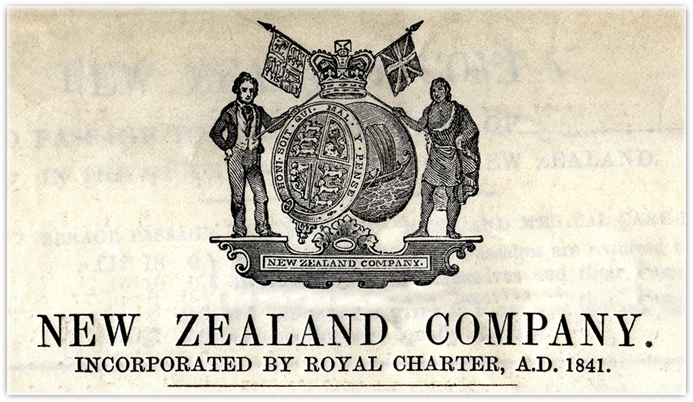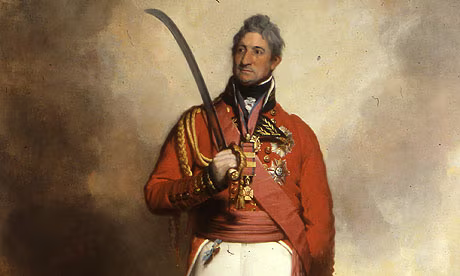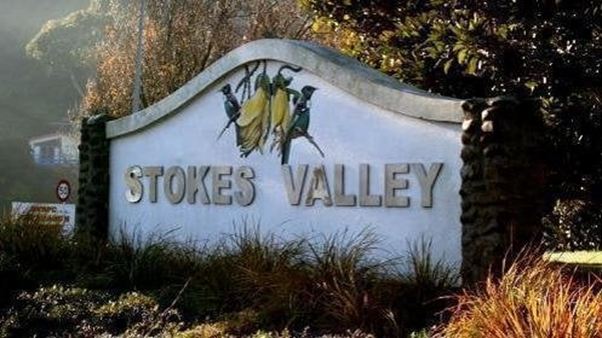New Zealand Connections to Caribbean Slavery
A recent article in the Post by journalist and author Denis Welch caught my interest. In it Welch wrote about discovering that Ellice Street in Mt Victoria, Wellington, was named after a figure connected with Caribbean slavery. Russell Ellice, for whom the street was named, was a director of the New Zealand Company. He also happened to be the absentee owner of 295 African slaves held on various Caribbean sugar plantations.
Following the abolition of slavery throughout the British empire in 1833, the British government awarded the massive sum of £20 million in compensation,[i] payable not to the former slaves or their descendants but to the slaveowners. Ellice received just over £8120 compensation for the loss of his former human chattels.
Ellice, like many other New Zealand Company directors, never came to New Zealand. But he is far from alone in providing a New Zealand connection with Caribbean slavery. As a 2024 Stuff article noted, ‘The slave trade contributed to the global expansion of European powers, including Britain, through resources gained by exploiting enslaved people, and it helped finance Britain’s colonial advancement around the globe - including, of course, in New Zealand.’
The timing of the compensation scheme, so close to the advent of mass British migration to New Zealand after 1840, meant some of those migrants would have been beneficiaries of that scheme and the capital they brought with them to the colony would therefore ultimately have been derived at least in part from slavery. Many other prominent figures associated with the New Zealand Company remained in Britain but purchased lands in New Zealand as investments. And some would have received payouts under the Slave Compensation Act of 1837, just as Ellice did.
American-born Francis Baring, later the 3rd Baron Ashburton, after whom Baring Head (now officially Baring Head/Ōrua-pouanui) in Te Whanganui-a-Tara/Wellington Harbour was named, was a key figure behind the New Zealand Company and later the Canterbury Association.[ii] He was also awarded the huge sum of £57,000 as mortgagee owner of 1079 slaves across eight separate Caribbean sugar plantations.

Given the highly fluid, mobile and global nature of British imperialism in the nineteenth century, multiple other New Zealand connections, direct or indirect, with Caribbean slavery are also likely. This would be a fertile area for future research – if only the government hadn’t actually cancelled funding for humanities research in this country. What I have found for the purposes of researching this newsletter post is probably just the tip of the iceberg.
Besides Baring Head, other places in New Zealand are also named after individuals with connections to Caribbean slavery. The township of Waitohi is perhaps better known to many as Picton, the location of the South Island’s Cook Strait ferry terminal. According to NZHistory.govt.nz it was:
Named by Governor Sir Thomas Gore Browne in October 1859, ten years after the town site had been surveyed, after Sir Thomas Picton. A commander under the Duke of Wellington in the Peninsular War, Picton achieved fame as the hero of Badajoz; he was killed in the Battle of Waterloo.
Picton was a servant of empire. He was also a slave owner known for his brutal treatment of slaves. In Picton’s own home country of Wales steps have been taken in recent years to acknowledge his slavery connections. In 2020, for example, Cardiff City Council voted to remove his statue from a ‘Heroes of Wales’ display. Locally, there have been calls also for Picton to officially revert to Waitohi.

Thomas Picton is a particularly notorious example, partly because of what was long deemed his heroic death at Waterloo, combined with the known evidence of his especially cruel and sadistic treatment of slaves.
But as Denis Welch noted in his piece for the Post, thanks to UCL’s groundbreaking Legacies of British Slavery database, it is easier than ever to establish some of those connections.
A search by address, using country only and entering New Zealand returned 11 results. But browsing the ‘Imperial Legacies’ section of the database, 22 individuals were associated with New Zealand in some way (others with some New Zealand connections are not included here – I found Francis Baring’s name in the database, for example, simply by searching for him). Of those who are listed as being associated with New Zealand, two stood out to me.
Sir Samuel Osborne-Gibbes was born in England in 1803 but spent much of his youth on his father’s sugar plantation in Barbados. He inherited the plantation and its slaves upon the death of his father (along with a baronetcy inherited from his grandfather) and lived on the plantation between 1821 and 1833. After the abolition of slavery, he returned to England but later migrated to Australia, and then (in 1855) to New Zealand, where he was a member of the Legislative Council until 1863. He remained in New Zealand for the rest of his life, dying here in 1874. He received just over £6653 compensation for his former slaves.
Osborne-Gibbs didn’t have any places in New Zealand named after him, as far as I can tell. My second case study did, however.
Robert Stokes was born in Jamaica in 1809. His father was chief clerk in the Post Office. He was also a slaveowner and upon his death in 1819, Robert and his brother John Milbourne Stokes (who also migrated to New Zealand) each inherited a one-quarter interest in the proceeds from the sale of 33 slaves.

In 1839 Robert Stokes gained employment as a surveyor with the New Zealand Company. He arrived at Te Whanganui-a-Tara, or Wellington as it would soon become, in January 1840 and was soon deployed surveying lands in Wellington and the Hutt Valley for the company’s highly dubious (if not outright fraudulent) land purchases from Māori. Stokes went on to become a prominent Wellington settler, founding the New Zealand Spectator and Cook’s Strait Guardian, being elected to the Wellington Provincial Council and serving in the Legislative Council (New Zealand’s upper house) between 1862 and 1879. He died a wealthy man in 1880 after returning to England in old age, having accumulated interests in 30,000 acres of land in New Zealand alongside his brother. The Lower Hutt suburb of Stokes Valley was named in his honour. A search of Papers Past reveals the name was in use by 1851 at the latest.
Whether it still should be today, given what is now known about his slaveholding history, is something worth reflecting upon.
[PS: I’ve opened up this post to all subscribers as I think this raises important issues to consider. But it’s taken me nearly a week to research and so if you are in a position to take out a paid subscription to support future work of this kind, then please consider doing so. I’ll also be posting an exclusive offer for paid subscribers in the next week or so].
[i] A sum so large the British Treasury did not pay off the loan required until 2015.
[ii] Some sources (including the New Zealand Gazeteer) also state that the Canterbury town of Ashburton was named after him. However, NZHistory.govt.nz states that Ashburton was named ‘in honour of the 2nd Baron Ashburton, William Bingham Baring (1799-1864), one of the foundation members of the Canterbury Association’. Francis was his younger brother and heir. https://nzhistory.govt.nz/taxonomy/term/100261 Given Ashburton was being used for the district and river as early as 1851 (see, for example, https://paperspast.natlib.govt.nz/newspapers/LT18510222.2.6) it wouldn’t appear to be named after Francis Baring. Alexander Baring, the 1st Baron Ashburton, died in 1848 and it seems possible that the name was adopted in tribute to him. Like his son Francis, Alexander Baring was also connected with slavery. See https://www.ucl.ac.uk/lbs/person/view/-1411131717
-
How far do you want to look? How bleak do you want to get?
The missionary societies owned slaves, notably the Anglican societies, and they accepted the slaveowners' compensation and put it into their other investments. Pretty sure Tina Ngata or someone has talked about this: the missionaries who settled here, whose salaries were paid for decades from London, were direct beneficiaries of compensation, which is to say soft lavery.
The Empire in the 1840s was slaughtering their way through Africa, Asia, and the Middle East. We sent detachments to the Boer Wars, there's a big ANZAC memorial in the Negev, and entire expeditionary armies were being wiped out in Kabul, and the armies of retribution slaughtering entire cities in revenge.
Whenua are tīpuna, do white land "ownership" is slavery too. Seems we're planning on making all the same mistakes again, with even the Green party offering compensation to white landowners, rather than 200 years go back to rent to the only Peoples who actually belong to the land.
But then, as jared Davidson points out, the infrastructure of colonial New Zealand was primarily built by "prisoners" - i.e. Māori - and of course abuseincare.org.nz shows how little has changed since 1840 - so just who do us white zealanders think we are?
-
So as Russell cannot be renamed as Kororareka, as deemed by Chris Penk, it would seem highly unlikely this Govt would rename Picton or Stokes Valley even though it would appear entirely appropriate to do so.
it will happen - it's only a question of when - which comes down to how afraid Māori remain of the explicit threat of extinction by the slowly decreasing (but increasingly heavily-armed) fraction of the population that are openly white supremacist - currently around three million out of five.
Keeping any statue of a white in Aotearoa is white supremacist - no difference from keeping statues of confederate soldiers and generals in the re-Confederating USA, or statues of Stalin in Eastern Europe. Keeping English names of towns or cities (except possibly Auckland) is white supremacist - no difference to dong the same anywhere else - or calling Kyiv "Kiev". Keeping schools English medium is white supremacist - Wales has a plan to move their entire primary and secondary education system to Welsh, whereas we're literally doing the reverse.
white zelaanders love to decry afrikaaners as the big racists - but of course South Africa returned the legislature and executive to the Indigenous Peoples (even tho' the judiciary still embodies a white veto) but that's still far more progress albeit thirty years ago than in white zelaand today - but hey, our country is still named in Afrikaans
just who do white zelaanders think we are? why are we still here?
-
I'm not entirely sure where the state of research into this matter is, I know it has been subject of a number of projects over the years, but I believe a book should be written on New Zealand's relationship to the American Civil War (if it has not been written already). As I understand it, there was something of a panic that, implausibly, the naval component of that war would spill so far as to see commerce raiding of New Zealand shipping interests. Further, I believe I've read that both Confederate and Union veterans retired to New Zealand over the ensuing decades. Even given there has been some research on the topic, it'd be a fascinating project alongside other research into slave economics and New Zealand (not to mention the role of many New Zealanders in the terrible Blackbirding expeditions of the era).
-
An interesting piece, thanks Vincent. I've written about some other street names in Lower Hutt linked to slavery here: https://pastword.blog/2019/05/05/of-poppies-pacifists-and-pirates-continued/
Thanks for sharing this blog link - very interesting.
-
Pretty much all of Britain had some connection to the slave trade. We can pick out those that financed it and those that profited most from it, but it was a continuum. Top to bottom of British society who had some involvement in it or benefit from it. Dig a little deeper in the history or ancestry of people involved here it was not just the like of directors of the NZ company.

Add a comment: